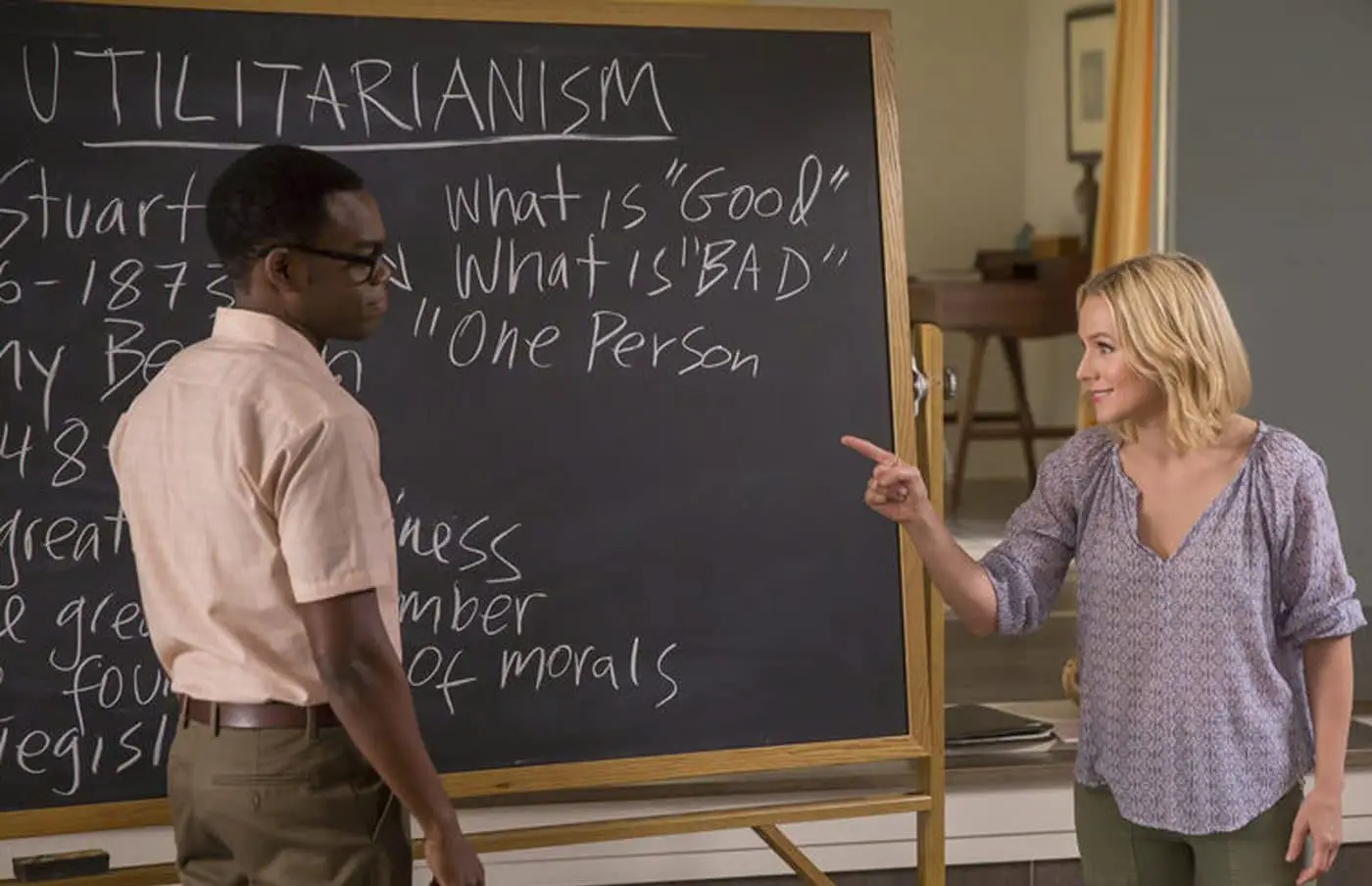[dropcap size=big]I[/dropcap] think it’s safe to say that everybody has heard the arguments against watching television from the mouths of their elders since the thing was practically invented:
“It’ll rot your brain!”
“If you sit too close to the TV, you’ll go cross-eyed.”
“All that’s on that piece of junk is sex and violence!”
The first two statements are quite ridiculous.
Although…you probably shouldn’t sit that close, if we’re splitting hairs here. And you might want to choose socializing in the real world every now and then over binging Friends for the umpteenth time.
And nowadays, I guess the third one has some validity to it.
Humble beginnings
The dawn of TV was just that, humble. Wholesome, cookie-cutter shows like Leave It To Beaver and The Andy Griffith Show dominated the airwaves, and America ate them up. They were simple and infinitely “cleaner” than anything on television in the last decade or so, but did they really teach us anything substantial?
Morality starts to lose its sparkle when its fed to you weekly via formulaic plot progression.
Sure, pretty much each episode of these programs contained some semblance of a moral lesson. That’s all well and good, despite the fact that the repetitious nature of the delivery of said moral lesson degraded the message itself. Morality starts to lose its sparkle when its fed to you weekly via formulaic plot progression.
Network TV = entertainment?
Major TV networks like NBC, CBS, and ABC aren’t particularly known for their desire to generate content that garners intelligent conversation and/or a longing to better oneself as a human being.
Especially ABC, need I say more than “The Bachelor” and the hoard of unimaginative reincarnations?
…it’s the blending of elements of academia and an off-kilter and socially aware tone that separates it from the others…
Yes, there are a few exceptions I can think of (looking at you, Lost), but even those shows didn’t have the same effect as something like The Good Place. In this case, it’s the blending of elements of academia and an off-kilter and socially aware tone that separates it from the others (the fact that they can’t swear is pretty forkin’ funny).
Don’t judge a [show] by it’s cover
Now, I don’t think I’m alone in saying that I didn’t expect much from NBC’s The Good Place, which premiered in September 2016 and is now currently in the middle of its second season.
The commercials on TV didn’t do much in the way of giving viewers a good sense of what the show was about, besides the fact that Kristen Bell’s character was dead and in “The Good Place.”
There is certainly discussion about religious concepts, a few of them being the duality of “The Good” and “The Bad”…but most of the emphasis lies on morality and ethics.
As someone who binged the first season in about a day, I can now say that NBC’s tactic to conceal rather than expose the show’s true nature (or secrets) from the start was quite a brilliant move on their part.
While the show seems to be centered on religion, based on the title and what you gather from the commercials, it’s wholly rooted in philosophy and it addresses famous figures and concepts on a episodic basis. There is certainly discussion about religious concepts, a few of them being the duality of “The Good” and “The Bad” Place and supposedly how people end up in one or the other, but most of the emphasis lies on morality and ethics.
Busy educating the masses
…it proves that TV has the potential to at least cause us to ponder about ourselves, or even to transform us into better human beings.
Kristen Bell’s character Eleanor (who ends up in “The Good Place”, though only because of a mix-up, seeing as she was a horrible person when she was alive), spends the entirety of the show being taught how to be a good person by fellow resident and former ethics professor Chidi.
As Eleanor absorbs the theories of famous thinkers, so does the audience watching. Through this process, The Good Place shines a light on the most impactful role that the media can take on: educator.
Perhaps explosions and the evolution of organized crime are more thrilling than the teachings of Kant or Locke, but they don’t inspire reflection or quench the thirst for knowledge quite like a show such as The Good Place.
The Good Place presents the topics it addresses in a way that is engaging and thought-provoking (end of the first season, hello!), and it proves that TV has the potential to at least cause us to ponder about ourselves, or even to transform us into better human beings.




